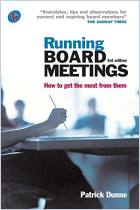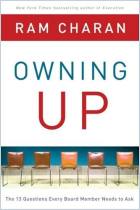Acesse a sua conta getAbstract para obter o resumo!

Acesse a sua conta getAbstract para obter o resumo!
John Harper
Chairing the Board
A Practical Guide to Activities & Responsibilities
Kogan Page, 2005
Sobre o que é?
Your board members shape your mission, culture and strategy. Take advantage of their knowledge and experience.
Recommendation
John Harper offers a worthwhile, if dry, look at a topic that is too rarely addressed in business literature, namely, how to create, structure and operate a board of directors. Among the book’s most useful features are first-person sidebars from well-known directors and business leaders, who offer practical advice on key topics. The appendices are also informative, focusing on corporate governance issues and the legal best practices every board member should know. Written with the interests of board chairmen foremost in mind, this book provides a thoughtful look at the major issues likely to confront any board. Although you may have to search hard to find anything novel in its approach, perhaps that’s appropriate, given the inherently cautious and conservative nature of most boards. getAbstract.com recommends this book to anyone who wants to improve corporate governance, particularly those who serve on boards of directors.
Summary
About the Author
John Harper has sat on more than 30 corporate boards, as chairman, chief executive, executive director and nonexecutive director. He was professional development director at the Institute of Directors, where he conducted courses on proper board practices.


















Comment on this summary